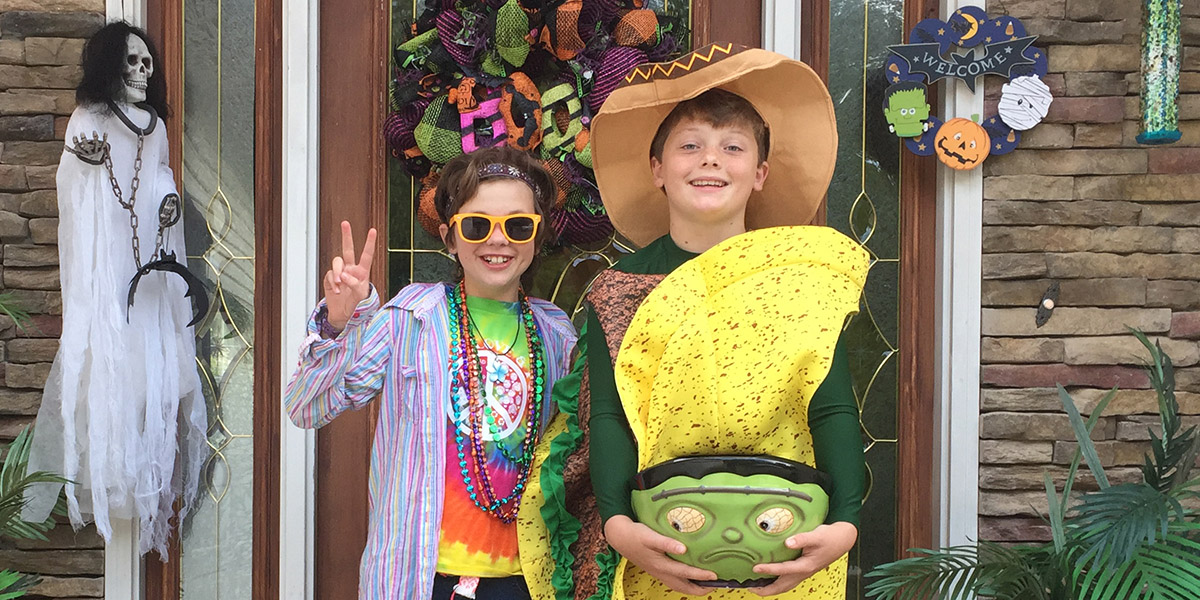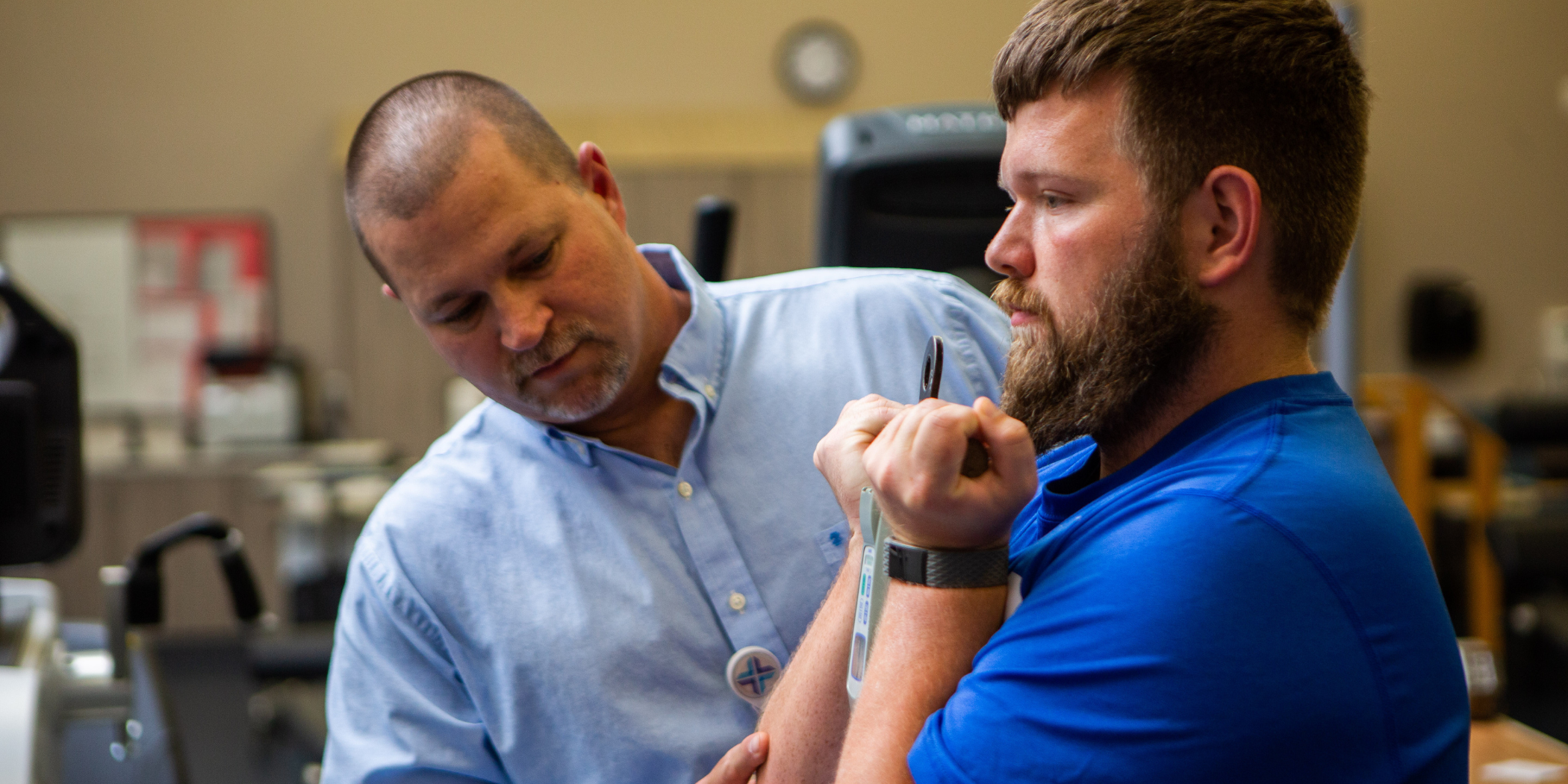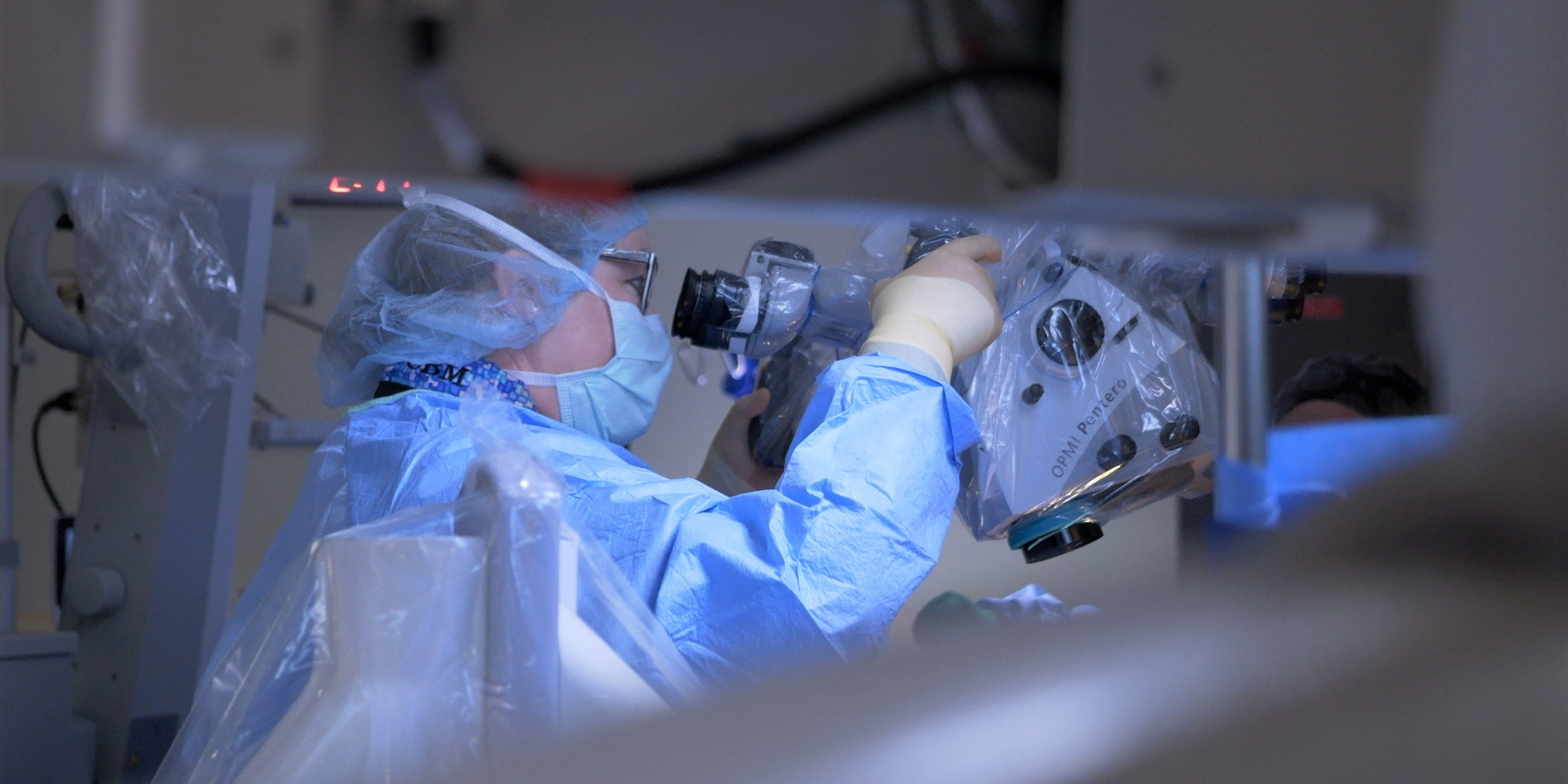
Keeping children with food allergies safe
Douglas Reid was 2 years old when his parents discovered he had food allergies.
“He was with his grandparents and they stopped at a fast food restaurant,” said his mother, Mary Reid. “His grandmother offered him some of her brownie and he only wanted to eat the walnuts out of the brownie.”
As Douglas and his grandparents drove down the highway, they noticed the toddler was scratching his face and his cheeks gradually started to swell. His grandparents stopped for Benadryl and then took him to a clinic, where he received a shot and was advised to consult with an allergist.
That was when Douglas first started visiting Robin Go, MD, allergist with Medical Group of the Carolinas. Douglas, who is now 12, continues to see Dr. Go.
“We took Douglas to Dr. Go and blood tests revealed that his blood levels were high for all types of nuts,” Mary said. “Since then, we have kept him away from any foods with or made with nuts.”
Douglas's little sister, Mary Elisabeth, 10, also has nut allergies. Mary and her husband, Ashley, don't have nut allergies but are careful to keep their children away from anything containing nuts.
“When it comes to Halloween, we take them trick-or-treating, but we make sure all the candy is wrapped,” Mary said. “When we get home, we sort through the candy and take out everything with nuts.”
An initiative is now helping families like the Reids make Halloween less scary for children with food allergies. The Teal Pumpkin project was started in 2014 so families could easily spot homes that were giving out goodies that were safe for children with food allergies.
Homes with a pumpkin painted teal signify that they are handing out non-food treats like rings, pencils or glow sticks.
“Not only does this increase awareness about food allergies, but it also builds community involvement,” said Dr. Go.
About food allergies:
For patients with true food allergy, they have to avoid the allergen completely to avoid an allergic reaction, according to Dr. Go. For most patients, exposure means actual ingestion of the food. However, some patients can be bothered by smells or scents of the food, especially those with fish or shellfish allergy who are around when these foods are being cooked and are exposed to the aerosolized food.
Patients with cow's milk and egg allergy can tolerate them as an ingredient that's baked in high temperature, such as cake or cookie, because the protein has been denatured.
For more information on allergies, please call Medical Group of the Carolinas—Medical Affiliates—North Grove at 864-585-5433.












